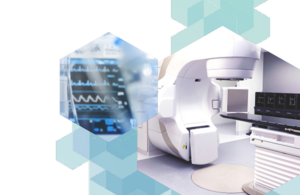MHRA response to Equity in Medical Devices: Independent Review
The MHRA welcomes the publication of Dame Margaret Whitehead’s Equity in Medical Devices: Independent Review

The MHRA is fully committed to ensuring equitable access to safe, effective, and high-quality medical devices for all individuals who use them.
We acknowledge that more needs to be done to address inequities in relation to the regulation of medical devices. We are committed to working collaboratively with Government, other regulatory bodies, healthcare professionals, and patient groups to address these issues effectively, in line with the Review’s recommendations.
As set out in the Government response, we are taking forward the following measures to strengthen the regulatory environment for medical devices and promote equity:
- Working towards providing strengthened guidance to developers and manufacturers on improving diversity in testing, investigating and development of medical devices
- Engaging in Software and AI as a Medical Device Change Programme, to ensure device regulation is fit for purpose taking into account the diversity of users of AI and other software as a medical device and diagnostics
- Continuing to strengthen our vigilance role, as specified in Baroness Cumberlege’s Independent Medicines and Medical Devices Safety review by listening to and engaging with patients and the public.
These measures aim to ensure a high degree of protection for patients and the public and to strengthen the UK’s reputation for responsible and safe innovation in relation to medical devices for all who use them.
Alongside the Food and Drug Administration (FDA) and the EU, we have already started work to tighten regulations and guidance on the development and monitoring of pulse oximeters in response to the evidence of inequalities in health outcomes.
Over the last two years we have prioritised initiatives to strengthen regulation and monitoring of pulse oximeters, including the following:
- A scientific review of the potential for inaccuracies of pulse oximeters on different skin tones and subsequent revision of MHRA guidance
- The development of future medical device regulations to strengthen requirements for manufacturers in line with technological progress and international best practice to deliver public and patient safety benefits, including in relation to diversity
- Routinely requesting information on the representativeness of intended user populations in medical device clinical investigation applications reviewed by the MHRA, which is informing the development of new guidance.
The MHRA welcomes in particular the report’s timely focus on medical devices enabled by AI. As Dame Margaret Whitehead notes, the advance of AI brings with it not only great potential benefits to society but also possible harm through inherent bias against certain groups in the population, notably women, ethnic minorities and disadvantaged socio-economic groups.
At the beginning of 2024 we set out a clear path ahead for the development of new and robust regulations for medical devices in the UK through our new roadmap. This roadmap strengthens the MHRA’s ability to keep patients safe, while at the same time contributing to an environment which encourages access to the most innovative technologies, such as implantable devices, healthcare AI and software and diagnostics for early detection and prevention of disease, all of which make a real difference to the public’s health.
We look forward to continued collaboration with the government and other stakeholders as we take forward the recommendations of the Independent Review of Equity in Medical Devices, so that we address and overcome healthcare inequities in medical technologies.